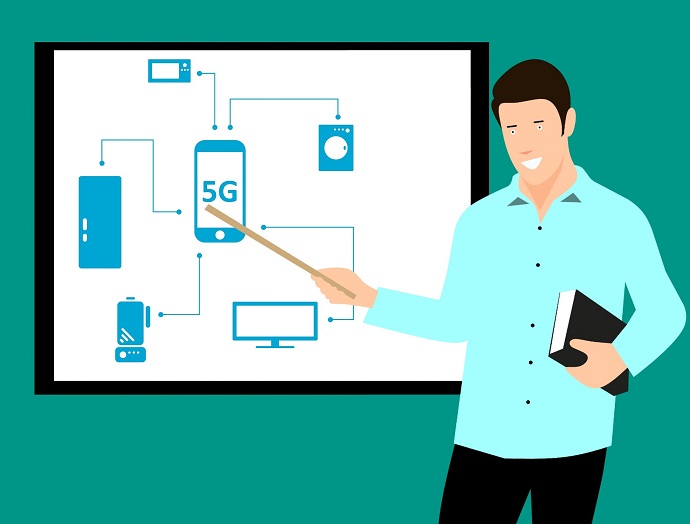This tutorial will give you complete information about the latest Mobile App testing trends. First and foremost, testing needs to be initiated from the very start of the development cycle. To reduce the risk of bugs and instability in software, a test automation process must be implemented to ensure releases are smooth.
When putting out an app quickly, it’s important to test the software as early and often as possible. You can do this by utilizing automated processes to speed up the process. When new versions are released in rapid succession, your software needs a quality assurance (QA) process that will provide reliable feedback as tests are designed to get at the root causes of any bugs or stability issues. The speed at which your software is developed may not always allow time for thorough testing, so you need to make sure you are prepared and have a process in place to handle this.
Automation and processes can be essential to help make sure your application works as smoothly as possible. As the world becomes increasingly responsive to technology, it’s important that you are positioned to respond to feedback from your audience. You have to understand how users interact with your app or website so that your user experience can be continuously improved.
It is important to ensure higher customer satisfaction by testing every aspect of your product before it is released to the public and checking for performance, compatibility, data leakage, and solving complex bugs that won’t impact your app’s user experience. As the technologies change, so must your app development strategies and processes. Utilizing advanced strategies and techniques ensures that your product achieves success in the market.
Mobile App Testing Trends
1. The use of AI (Artificial Intelligence)

Artificial intelligence (AI) is everywhere and is already changing IT. AI implementations have permeated daily lives in many ways—managing calendars, recommending movies and books, and helping people shop online. AI is also a key component of the business. Many companies are using AI to help identify patterns that would otherwise be impossible to find and enable them to make better decisions that will improve their businesses’ operations, performance, and customer experience. The use of AI means overcoming some of the inherent limitations of humans, such as understanding other languages or shallow learning with minimal human intervention. Artificial intelligence is expected to change the world, and it’s easy to see why when you look at the advantages it offers over human-only testing.
The artificial intelligence tools and platforms currently available can dramatically speed up the development and testing process, helping companies become more agile. For most companies, artificial intelligence and machine learning are the next step forward for virtually every aspect of the development cycle. A stable release process can help with everything, from improving testing strategies to catching bugs, while reporting and analytics can help you better understand your software. By using AI developers can decide which testing needs to be prioritized and how to develop test coverage Artificial Intelligence app testing tool is implemented with the help of machine learning, big data, and artificial intelligence technologies. These are engineered in such a manner that they help deliver an accurate result. Artificial Intelligence technology discovers bugs or defects within mobile apps without any human interaction. There is an intelligent and robust system that will continuously monitor your mobile application for various needs of testing. Now, with artificial intelligence in a smart enough machine learning system, you’ll be able to do advanced research into apps that would be hard to find manually. You’ll be able to do predictive analytics around application behavior and mobile user experience so you can plan for future issues as well as find issues with your applications already published.
Machine learning provides intelligent algorithms for making suggestions in addition to providing you with insights that can help plan your testing. With artificial intelligence, you will be able to use it as a tool that aids you to make better tests and tests more often and improve the overall performance of your apps.
2. Automation Testing is the future:

Automated testing tools help you verify if your software is performing as expected. This helps your team identify issues before releasing updates If you are not happy with the quality of your current quality assurance testing then with your automated QA framework, you can ensure that all new development builds are assured to be functional or regression-free before hitting the market.QA practices can be put to better use when Agile and DevOps are involved. Scriptless testing, CI/CD, and other automation tools help the QA process run more efficiently. A comprehensive checklist, easy-to-use form workflows, and a centralized dashboard allow you to easily manage high volumes of test cases.
Quality assurance is incredibly important. Around 12% of companies have fully automated their quality assurance, and about half of the respondents believe that they’re at least halfway to automating all of their QA processes. While this makes sense for large companies with business-critical projects, it’s important for startups to consider an agile approach as well. Automated solutions typically result in a faster turnaround time for reporting and fixes, allowing you to do better. High-quality code is a competitive advantage today. To ensure that your product has the best possible quality, you should automate quality assurance procedures. The survey highlights the importance of automated testing to gain valuable insight into customer perspectives.
A robust testing suite is imperative to modern software teams. As a QA professional, you would have worked across the entire software development lifecycle. This enables the team to be more efficient and effective in delivering valuable features that meet business objectives. When properly designed, most types of software can be tested before the public is exposed to it. Proper and automated testing will also help identify and eliminate defects quickly so users can experience the best possible performance.
- RELATED – How to choose the best test automation tool
- How to use selenium for website automation testing
3. The Internet of Thing Development (IoT) Testing:

The Internet of Things (IoT) development testing aims to make sure a mobile app will work with various IoT devices from various manufacturers. The Internet of Things (IoT) certification tests the skills of a software tester for applications such as smart homes, cars, and wearable devices with mobile applications. Testers check the performance of these devices and the interactions between them and the mobile app. They need to configure various IoT devices with different mobile applications and ensure that they operate as intended. The IoT app testing course will help you develop your technical skills with the most popular software tools, programming languages, and frameworks. It’s a must-have for automation testers who want to gain an edge in the IoT field.
This module provides 30 hours of self-paced, hands-on training that teaches you the skills you need to test IoT applications. You will learn how to find vulnerabilities in mobile apps and IoT devices by testing for missing security controls, network attacks, and performance issues. Having a firm grasp of the key concepts of the Internet of Things (IoT) is critical to testing any IoT application. In reality, testing IoT devices is challenging and it requires a thorough knowledge of network security, particularly with respect to IoT devices. This course covers the technical details of the major issues in testing IoT apps and their underlying hardware. Participants will also learn how to design tests that effectively address these challenges while creating a positive user experience.
The increasing number of devices is creating a large number of integration points that have to be tested. The most problematic part of testing automation for IoT is that devices often use a third-party service provider’s cloud connection as the communication layer, a factor beyond a tester’s control. Therefore, unit testing is recommended to have all your data protected from being stolen by outside interference from the outside.
The Internet of Things (IoT) is all about collecting data through connected devices. Some developers use emulators to run tests on these connected devices, but this is not always effective. These factors are causing firms to turn toward server-based testing. The first analog test technologies were used to test the first IoT devices. However, as the devices become more complex, the cost of using first-generation test tools increases. Cloud testing is becoming a popular method for companies because it reduces costs and increases productivity.
4. The introduction of 5G and its subsequent impact on Mobile app testing:

The next generation of the web will be defined by what we connect and how we connect to it. To fully realize this new, intelligent Internet of Things (IoT), the capabilities of the mobile network will need to evolve as well. IoT is made up of physical objects connected to networks, enabling the objects to communicate via the internet. Devices on the IoT communicate with each other and make decisions based on information collected by sensors on them. As 5G enables faster connection speeds and demands higher bandwidth, mMCT plays a vital role in ensuring these devices will work properly.
The next-generation mobile network, known as 5G, has some very exciting, and new features that impact how we conduct our mobile test. The 5G network is built to handle enhanced mobile broadband, ultra-reliable low-latency communication, and massive machine-type communication. These new technologies allow testers to achieve faster download speeds, lower latency in connections, and more connections overall. The global adoption of 5G technology is changing the way the Internet of Things works. To understand this evolution, testers must learn about three core technologies within the 5G network.
5G technology enables faster data rates, which means a better experience for the end-user. VR and 360° video streaming will become a reality with this technology. It will provide an ultra-fast download speed of up to 10 GB / sec on the Internet.5G creates a massive uplink and downlink speed, which means faster information exchange. This technology is significant since it will support massive connections to the Internet of Things (IoT). MmWave Mobile Communication Test can be used alongside this to connect to devices at much lower power levels. This reduces the need for using large lithium-ion batteries in mobile devices.
5G testing on mobile devices will enhance the performance of one’s smartphone, as well as drastically reduce the power consumption of their antenna and RF unit. Having a larger antenna and smaller hardware is only possible with mMCT.
5. Enhanced focus on web security

Cybersecurity is a pressing concern for every company, large or small. Resolving the cybersecurity issues will help companies save costs and gain a competitive edge. While there have been many tries to increase security, they have often been difficult to maintain. However, recent changes have shown a positive outcome as cybercriminals are finding it increasingly hard to breach cybersecurity. As more enterprises are choosing to adopt digital technologies to transform their businesses, it is becoming increasingly important for them to secure the resources to avoid cyber-attacks. An increasing need for security testing across all sectors has also brought about an increasing need for skilled professionals in this space. In response to the need for reliable cybersecurity, Cyber Intelligence is being utilized to strengthen the network security systems of organizations worldwide.
The demand for security testing is growing considerably. As a result, it has become a money-making industry and carries a large and booming job marketplace. This trend also makes digital transformation more successful by bringing cyberattacks to never-before-seen lows. After years of rushing with the technology, the Cybersecurity industry has reached its peak. Due to the recent security breaches, there is a need for better security implementations. Luckily, with cloud computing, cyberattacks will be reduced by 80 percent.
Conclusion: Mobile App Testing on Cloud
LambdaTest helps you perform mobile application testing on the cloud to stay abreast of all the industry trends pertaining to mobile app testing. LambdaTest empowers mobile app teams to accelerate testing with real devices on the cloud. Their Emulators and Simulators for iOS and Android allow you to test your app instantly across a wide range of devices. Test UI, performance, stability, and compatibility with complete control from any Web browser – saving you up to 80% in manual testing time and cost, and getting you to market faster.
Offer: Our readers get a special 20% discount on all LambdaTest plans. Visit our LambdaTest discount coupon page for the promo code.
- RELATED – LambdaTest Review
- 6 best cross-browser testing tools
- 10 Best Practices for Planning a Test Automation Strategy
I hope this tutorial helped you to set up the “5 Latest Mobile App Testing Trends”. If you like this article, please share it with your friends. If you want more blogging tips, follow BlogVwant on Facebook, Twitter, and YouTube.
Mobile App Testing Trends – FAQs
How to test a mobile app on devices of multiple brands that I don’t own?
You can use an online cloud-based testing platform like Lambda Test which enables mobile app testing on the world’s popular brands and models.
What is LambdaTest?
LambdaTest is a popular cloud-based testing platform founded in 2007 with a goal to simplify and automate the testing process of mobile apps, websites, and web apps. For mobile app testing, it can give you a cloud-based environment where you can test your app with a range of real Android and iOS device simulators and emulators in real-time.
What are the benefits of LambdaTest cloud-based mobile app testing over traditional testing?
Cloud-based mobile app testing has numerous advantages including Readymade configuration setup being available for testing, no need to purchase emulators/simulators/physical devices for testing an app, geolocations-based testing, cost-effectiveness, automation, and much more.
How much does mobile app testing cost with LambdaTest?
LambdaTest premium plans start from just $15/month where you get unlimited real-time app testing minutes.
Does LambdaTest offer a free plan?
Yes. It has a lifetime free plan which gives you 100 real-time app testing minutes.
Can I find bugs in my mobile app with the LambdaTest testing tool?
Yes.
Do I need a 5G network speed to perform mobile app testing?
Yes. 5G or fiber-based fast internet speed is required in mobile app testing.
